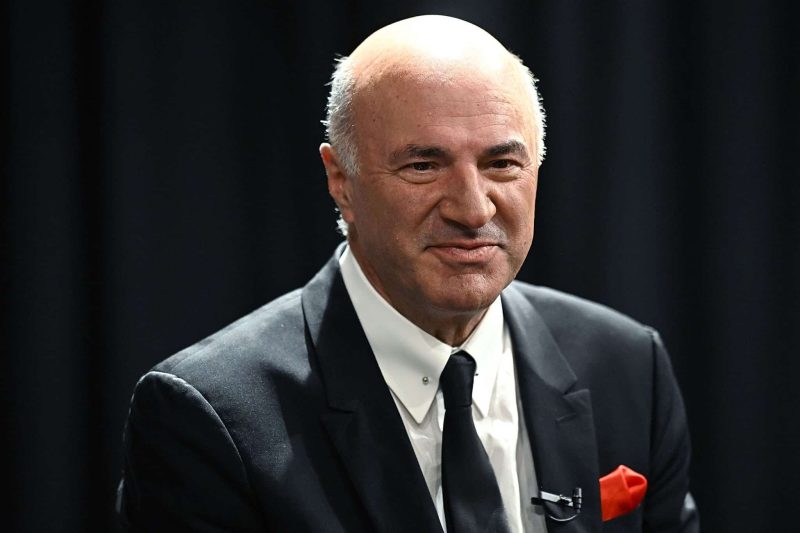(Photo by Steven Ferdman/Getty Images)
While the approval of spot Bitcoin (BTC) exchange-traded funds (ETFs) in the United States will further lead to the institutionalization of Bitcoin, Kevin O’Leary — a Canadian venture capitalist and CNBC personality — told Cryptonews that institutions won’t want to use a spot Bitcoin ETF to invest in the asset class. He said:
“I think people are mistaken if they think that institutions are going to use the spot Bitcoin ETF. Why would they pay those fees, when they can just buy Bitcoin themselves?”
O’Leary further shared his thoughts on why a spot Bitcoin ETF may appeal primarily to retail investors, along with explaining why compliance platforms may be the next trend to watch within the crypto industry.
Cryptonews: What are your general thoughts on spot Bitcoin ETFs?
O’Leary: I would never use an ETF due to the fees. It’s a ridiculous cost that is not needed, particularly with an asset that is a total commodity in the case of Bitcoin. I already own Bitcoin. The question then becomes, what exchange do I put it on? I have to be compliant, which is why I use the Canadian crypto exchanges.
I also think people are mistaken if they believe that institutions are going to use the spot Bitcoin ETF. Why would they pay those fees, when they can just buy Bitcoin themselves? For instance, if you are an institution, you can go to your compliance department and say, “The spot Bitcoin ETF has been approved as a spot ETF, now let us buy a 1% waiting on our own.”
CN: Do you have any thoughts on the spot Bitcoin ETF that was approved in Canada in 2021? Can we compare this to the eventual approval of a spot Bitcoin ETF in the U.S.?
O: Canadians were the first to allow the spot pricing of Bitcoin and Ether (ETH). However, these are widely held primarily by retail investors. The reason that a tiny fraction is even held by institutions is because of this:
Let’s say I’m an institution and I’m running a $9 billion fund. Every single day, I have to trade the majority of my positions, which are going to be in stocks and bonds. However, the clearing market for that is the S&P 500 in the U.S. There is no market larger or more liquid than the S&P 500, so I could put $500 million into the S&P 500 at 10:05 am and not move the market at all, which happens every day. In order to do this, though, you have to remain 100% compliant with the SEC [Securities and Exchange Commission]. So, why in the world would an institution risk getting involved in a Canadian or even a U.S. spot ETF if the SEC has not yet approved Bitcoin?
So the U.S. approval of a spot Bitcoin ETF would give institutions an argument for their compliance department. They would be able to say that they can buy Bitcoin for 1% waiting in a sovereign wealth fund because Bitcoin has been approved. In general, though, the Canadian market is very important. If you are an individual in the U.S. you can use it to open an account and buy an ETF, but no institution is going to do that. Also, U.S. institutions and sovereign wealth funds are likely very nervous that you get offside with the SEC when the majority of your money is being held in compliant indexing in the S&P 500. If you are offside, you are offside. It doesn’t matter what security took you offside, so why risk owning Bitcoin?
CN: Do you have any thoughts to share on the SEC’s X account being compromised?
O: It’s embarrassing for the SEC, but they immediately retracted fourteen minutes later. I also knew that the SEC wouldn’t approve the spot Bitcoin ETF on X. That doesn’t make sense to me, and sure enough, it wasn’t real. There is also something to remember about Bitcoin. Only about 38% of it is held in the U.S., so the rest of the world isn’t embroiled in this debate. But, the situation I’m most intrigued about is the emergence of M2, a full-service crypto investment platform. For instance, even with the approval of a Bitcoin ETF in the U.S., institutions in another country may want to put a 1% position on a $5 billion fund.
Where can I do that? I can’t do it on Coinbase because they are in litigation with the SEC, and I can’t do it on Binance because the shareholder is a convicted felon. Then, out of nowhere comes M2, which is backed by sovereign wealth.
The ownership is private, but there is a major shareholder in the company called “Phoenix Technologies” that just went public on the Abu Dhabi Securities Exchange. So, where is the safest place in the world to hold your Bitcoin or any cryptocurrency now? It may be M2. I’m pointing this out because compliance platforms are now emerging. M2 will always be compliant because it’s managed by sovereign wealth, which is important for being able to trade on the S&P 500. Regardless of what happens with the spot Bitcoin ETF in the U.S., the future is compliance platforms.
CN: Any final thoughts on the matter?
O: I’m still confident that within 5 years, crypto will be the twelfth sector of the S&P 500, only because of the efficiency of payment systems it provides for all sectors of the economy.
The post Kevin O’Leary says Institutions Won’t Use Spot Bitcoin ETFs and Hints at Next Trend in Crypto appeared first on Cryptonews.






